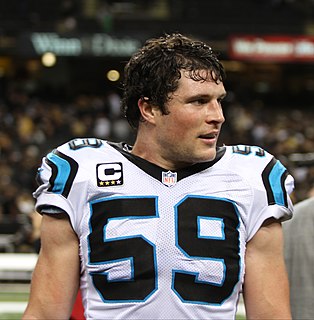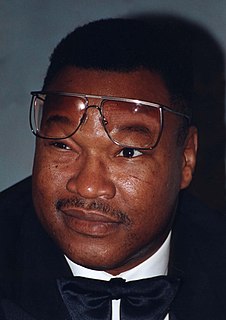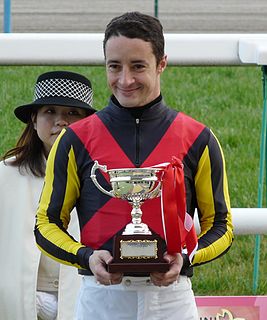A Quote by Ouida
When you talk yourself, you think how witty, how original, how acute you are; but when another does so, you are very apt to think only - What a crib from Rochefoucauld!
Related Quotes
It is not nearly so important how well a message is received as how well it is sent. You cannot take responsibility for how well another accepts your truth; you can only ensure how well it is communicated. And by how well, I don't mean merely how clearly; I mean how lovingly, how compassionately, how sensitively, how courageously, and how completely.
Life is challenging. I wish I could tell you that you’ll always be on top of the mountain, but the reality is that there are days when nothing will go right, when not only will you not be on top, you may not even be able to figure out which way is up. Do yourself a favor, and don’t make it any harder than it has to be. In those moments, be careful how you speak to yourself; be careful how you think of yourself; be careful how you conduct yourself; be careful how you develop yourself.
I think football is a lifestyle more than anything. It's how you eat, it's how you sleep, it's how you conduct yourself. It's just everything you do you have to keep in mind, is this going to help or have a positive impact on how my practice is going to be, how my workout is going to be, how the game is going to be.
I think a trainer is very important at the beginning of a fighter's career. A fighter needs to know how to throw a left, throw a right, how to duck, how to do certain things. Over time, you don't really need a trainer. You've got to train yourself. You've got to motivate yourself. And I don't think anybody can put that in you.
To spend any time with someone who is among the top five film composers of the last 50 years is pure gold dust. I mean, not necessarily stylistically, because everyone is different in what their music sounds like, but the approach and how to look at a film, how to think about a film, how to decide what you want to do, how to think about characters, how to think about art, how to think about narrative, how to liaise with producers, how to liaise with directors.
We know how to be doctors, nurses, lawyers. We know how to be tweeters. We know how to be everything. But how do you just be people? How do you be present with one another? How do you be honest with one another? How do you be compassionate towards one another, forgiving towards one another? We know what to do. We don't know what to be, how to be.
At Lacoste, I learned how to drive in a very conservative environment. I had to learn how to do politics, how to talk, how to explain, and how to communicate a vision, and the necessary link between marketing and creative teams. Also, very important, the shop experience, which was actually very frustrating at Lacoste.
I think that's a challenge as believers - how do you demonstrate the gospel? How do you do that? I mean it's easy to talk about it and say 'Oh this is what we are supposed to be doing' and this is the relevance. But how do you do that with your hands instead of your mouth? How do you do it every day, instead of just onstage, how is it enacted? And I feel like that is one of the ways that we can show what we believe, by how we treat people around the world.
My kind of nightmare quote is from Deborah Tolman, who does research on girls and desire and is, I think, brilliant. She told me that by the time girls are teenagers, when she asks them how sexual experience made them feel, they respond by how they think they looked; they think that how they look is how they feel.
When you're starting out as an actor people are very interested in who you are because they want to know where they can put you. And quite often, and we're all guilty of this is our lives, we judge very quickly and we pigeon-hole people very quickly based on how they look and how they talk and how they dress and we think: "Oh yeah, we know who you are."
When you are writing a spoken word poem, the tools you're working with are your voice, your body, how it's going to sound to someone when you're saying it out loud. Which is different from when you're writing it on the page. That toolbox becomes how does this look visually on the page, how does this read among pages, how is this in relation to poems that are before it or after it. I don't think one is better or more successful than the other. You've just gotta think about "what are the tools I'm using, and how are they most effective in this form?"







































